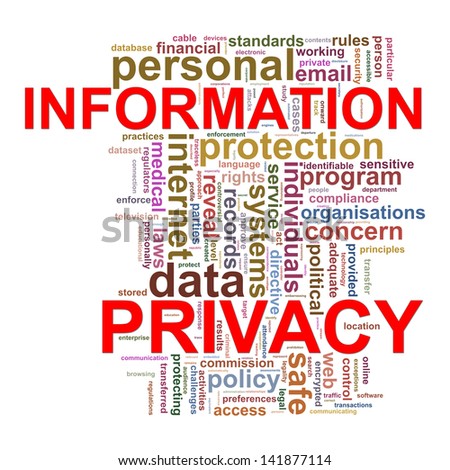Living in the Information Age

Last week, at a conference I attended one workshop of Darren in which he discussed the Digital Ethics. We watched this video (below). It created a stir among the participants. I heard expressions like ‘creepy’, ‘dangerous’, ‘oh wow’. There was a sense of ‘insecurity’ from the teachers in the room about social media.
When discussed, most people expressed unease in knowing their students via social media and the kind of complicated situations it can lead to.
My point of view on this topic are in line with the thoughts I touched upon in course 1 and that is about considering technology as a wonderful tool and means of fulfilling our thirst to discover, create, share and celebrate ‘knowledge’. The key principle to observe is to consider technology and cyber world as an extension of our real selves and to come forward in our online interactions similar to the real life. What is unacceptable in our daily life stays unacceptable in virtual life. If we approach the information age with this mindset I see only positive outcomes and it stands true for students as much as it is for teachers.
I have been an avid user of technology hence did not classify myself as a ‘digital immigrant’ even though I am not ‘technically’ from the age of ‘digital natives’ or maybe I totally missed the point of Marc Prensky. I am more inclined to conform to the conclusion of C. Brown & L. Czerniewicz in their research on the topic of digital natives and immigrants where they write ‘It is crucial that we as educators, as academics and as educational technologists reject deterministic and exclusionary labels and actively change this discourse’. Another conclusion by Gerald Haigh on this study that I find interesting states ‘Use of technology varies with age, but it does so predictably, over the whole age span. And secondly, although younger people are more likely to be positive about technology, there is evidence that a good attitude to technology, at any age, correlates with good study habits.’.
I reluctantly joined Facebook in 2008 but since then have developed my use of social media in line with my real life and it has been a wonderful experience enriching my knowledge and life. My current digital foot print, thought I am not convinced of it’s accuracy (I believe it is more than that) came out to be:

but that is just based on the questions this digital footprint calculator asks. It may be right 😉 in which case I have to do more creative writing in my blog posts 🙂









2 COMMENTS
Such a good point: “What is unacceptable in our daily life stays unacceptable in virtual life.” This is how I often explain this to parents – they already have the skills to parent in the “digital age” because they know what’s acceptable and unacceptable (in real life) and all they have to do is apply it in the digital world.
Thanks for sharing the video! I watched it and immediately shared it with some of my friends who I thought would be interested in it. My biggest take away from the video was the one man who said he would call the police if Jack ever did that to him again. My immediate reaction was “What??? Is that even possible? Can someone call the police over something like this? YOU put your information on the internet and made it accessible by not putting certain privacy settings in place.” So, I started searching. I came across a lot of different sites that talked about cyberstalking and how social media has made it easier for people to stalk. I even found a nonprofit called Privacy Rights Clearinghouse that’s dedicated to protecting the privacy of users.
https://www.privacyrights.org/social-networking-privacy-how-be-safe-secure-and-social
From my search, it comes down to ourselves as consumers- users of the internet. If we’re not comfortable with information being accessible to the public, or anyone with access to the internet, don’t post it! Use filters and make it public to friends, or use lists. I did a Google search for my name to see if my Facebook page shows up, and it doesn’t- because my page is private. However, other information shows up, and I’m okay with that. We need to be okay with the information that we, ourselves, are putting out there! If we’re not, don’t do it. Perhaps it’s not that simple?